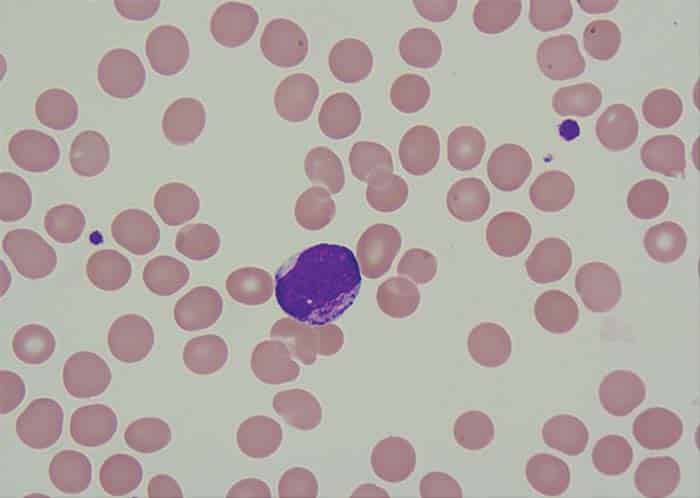March 2024—Like identifying the shift in battle that leads to victory, or the battle that wins the war—let alone declaring a war’s ultimate victor—it’s hard to gauge the whens, ifs, and hows that mark progress in medicine. For those who are deeply rooted in bringing advances to testing in urothelial cancers, current research is flourishing and flummoxing. In early and late stage, both for bladder and upper tract disease, recently approved therapies are leading to better outcomes for patients. More immunotherapies and antibody-drug conjugates are on their way, and with them come new options for testing. But as with any cancer, researchers follow numerous promising paths, knowing that some will dead-end and others will succeed primarily (albeit usefully) in raising more questions. Nevertheless, they continue to rally the work forward, with multiple breaches, and Agincourt, ever in sight. For experts such as David McConkey, PhD, progress will best be measured by how regularly precision makes its way into the clinical setting.
Read More »MARCH 2024
From training to first jobs, can the transition be made easier?
March 2024—Pathology trainees and training programs vary, as do first jobs, but the first year in pathology practice is generally said to be a tough one, largely because of the transition to fully independent case sign-out.
Read More »In diabetes patients, biomarker use for early-stage HF
March 2024—For patients with type 2 diabetes, the cardiac biomarkers are a better predictor of early-stage heart failure than conventional risk prediction scores. “We need to use biomarkers,” says Petr Jarolim, MD, PhD.
Read More »Survey probes staff shortage in genomics labs
March 2024—From a technologist workforce perspective, clinical genomics laboratories are in trouble. “It’s truly a crisis,” said Marco Leung, PhD, clinical director of the Steve and Cindy Rasmussen Institute for Genomic Medicine at Nationwide Children’s Hospital in Columbus, Ohio.
Read More »AP and CP reporting, from interfaces to IT wishes
March 2024—Anatomic and clinical pathology reporting—what’s working, what’s missing. Three pathologists (all board certified in informatics) and representatives of three information system companies met online Dec. 19 with CAP TODAY publisher Bob McGonnagle to talk about reporting needs and what’s optimal. The first half of their discussion was published in the February issue, with CAP TODAY’s guide to anatomic pathology computer systems. The second half begins here.
Read More »What’s going on? Interpreting urine toxicology cases
March 2024—For urine toxicology screening, immunoassays are automated and rapid but have variable sensitivity and specificity and results are considered presumptive. Mass spectrometry, used for confirmation, has superior sensitivity and specificity but is labor-intensive and slow and requires significant expertise.
Read More »AMP case report: Acute myeloid leukemia with hyperdiploidy
March 2024—CAP TODAY and the Association for Molecular Pathology have teamed up to bring molecular case reports to CAP TODAY readers. AMP members write the reports using clinical cases from their own practices that show molecular testing’s important role in diagnosis, prognosis, and treatment. This month's report comes from Aga Khan University in Karachi, Pakistan. Case. An 87-year-old male with a clinical history of hypertension and sick sinus syndrome presented with a one-month history of fever, generalized weakness, and weight loss. There was no lymphadenopathy or hepatosplenomegaly on physical examination. Bone marrow examination was performed to evaluate for cytopenias.
Read More »In urinalysis, compromises, collections, and rules
March 2024—Reflex criteria, middleware, bladder cancer screening, point of care, controls, and collections came up in CAP TODAY’s Jan. 16 roundtable on urinalysis. Six people weighed in, with CAP TODAY publisher Bob McGonnagle leading. Their take on where things stand and where they can be better follows. CAP TODAY’s guide to urinalysis instrumentation begins here. Tim Skelton, in last year’s ...
Read More »From the President’s Desk
March 2024—During the 12 years I spent as director of a pathology residency program, one thing I worried about was how to better prepare our residents for their first roles as attending pathologists or laboratory directors. For many pathologists, the transition from always having someone looking over their shoulder to being on their own is very challenging.
Read More »Clinical pathology selected abstracts
March 2024—Despite research into colorectal cancer screening and clinical experience, screening uptake remains low. Colorectal cancer (CRC) screening involves noninvasive tests, such as a fecal immunochemical test (FIT) and stool-based DNA tests, as well as invasive tests, such as colonoscopy. The latter has the best performance characteristics for early cancer and adenoma detection. The average adherence to CRC screening is 60.6 percent for U.S. patients aged 50 to 75 years, which is well below the 80 percent goal for adherence set by the National Colorectal Cancer Roundtable and American Cancer Society. Offering stool-based tests to patients who refuse colonoscopy results in only a modest increase in adherence, to 67 percent.
Read More »Anatomic pathology selected abstracts
March 2024—Lung transplantation is the definitive therapy for end-stage pulmonary sarcoidosis. While several case reports have described recurrent sarcoidosis in allografts, the incidence and clinicopathologic characteristics remain unclear. The authors conducted a study in which they characterized the clinical and histopathologic features of recurrent sarcoidosis diagnosed in post-transplant lung surveillance transbronchial biopsies (TBBx). They identified 35 patients who underwent lung transplant for pulmonary sarcoidosis during the study period. Eighteen (51 percent) of the patients experienced recurrent sarcoidosis post-transplant—seven females and 11 males (mean age at recurrence, 51.6 years).
Read More »Molecular pathology selected abstracts
March 2024—Human epidermal growth factor receptor 2 is a critical biomarker in breast cancer, gastrointestinal malignancies, and other cancers. HER2 protein expression can be evaluated using IHC, and the DNA copy number of its encoding gene, ERBB2, can be evaluated using FISH. In most clinical settings, IHC evaluation is categorized as positive (3+), equivocal (2+), or negative (0 to 1+), with equivocal cases being reflexed to FISH. Patients with HER2-positive tumors, defined as either 3+ or 2+/FISH positive, have been eligible to receive HER2-targeted therapy for many years. More recently, the FDA approved the antibody-drug conjugate trastuzumab deruxtecan (T-DXd) to treat patients with HER2-low breast cancer, defined as tumors with IHC 1+ or 2+/FISH negative. This promising treatment has allowed many more patients to receive molecular-targeted therapy.
Read More »Q&A column
March 2024 Q. Is it a requirement that routine bacteriology cultures (for example, urine, sputum) be plated in a biological safety cabinet in your typical hospital biosafety level 2 laboratory? Is it safe to read these cultures on an open bench? Read answer. Q. What source should a laboratory use for reference intervals for analytes? Read answer.
Read More »Newsbytes
March 2024—While Dr. Seuss’ assertion that “the more that you read, the more things you will know” is generally accurate, it doesn’t address the fact that how information is presented affects comprehension, a truism that is not lost on Edward Klatt, MD, who knows whereof he speaks when it comes to sharing information on patient portals.
Read More »Put It on the Board
March 2024—The Food and Drug Administration approved in December the AvertD test, which assesses whether an individual may have an elevated risk of developing opioid use disorder. Its intended use is to inform the decision-making of patients and physicians about the use of oral opioids for acute pain relief.
Read More » CAP TODAY Pathology/Laboratory Medicine/Laboratory Management
CAP TODAY Pathology/Laboratory Medicine/Laboratory Management






